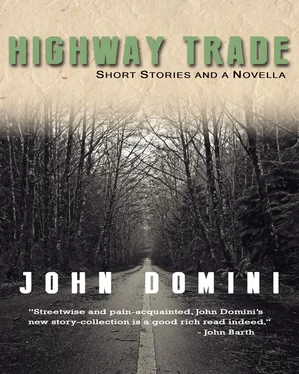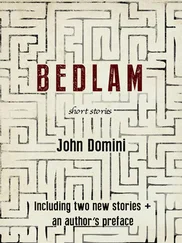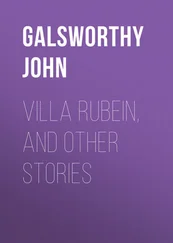John Domini - Highway Trade and Other Stories
Здесь есть возможность читать онлайн «John Domini - Highway Trade and Other Stories» весь текст электронной книги совершенно бесплатно (целиком полную версию без сокращений). В некоторых случаях можно слушать аудио, скачать через торрент в формате fb2 и присутствует краткое содержание. Год выпуска: 2013, Издательство: Dzanc Books, Жанр: Современная проза, на английском языке. Описание произведения, (предисловие) а так же отзывы посетителей доступны на портале библиотеки ЛибКат.
- Название:Highway Trade and Other Stories
- Автор:
- Издательство:Dzanc Books
- Жанр:
- Год:2013
- ISBN:нет данных
- Рейтинг книги:4 / 5. Голосов: 1
-
Избранное:Добавить в избранное
- Отзывы:
-
Ваша оценка:
- 80
- 1
- 2
- 3
- 4
- 5
Highway Trade and Other Stories: краткое содержание, описание и аннотация
Предлагаем к чтению аннотацию, описание, краткое содержание или предисловие (зависит от того, что написал сам автор книги «Highway Trade and Other Stories»). Если вы не нашли необходимую информацию о книге — напишите в комментариях, мы постараемся отыскать её.
Highway Trade and Other Stories — читать онлайн бесплатно полную книгу (весь текст) целиком
Ниже представлен текст книги, разбитый по страницам. Система сохранения места последней прочитанной страницы, позволяет с удобством читать онлайн бесплатно книгу «Highway Trade and Other Stories», без необходимости каждый раз заново искать на чём Вы остановились. Поставьте закладку, и сможете в любой момент перейти на страницу, на которой закончили чтение.
Интервал:
Закладка:
After a while, standing riveted, I become aware of the soundtrack underfoot. Shrieks and gunshots right underfoot. And even here there’s the smell of smoke.
Three Dreams of Europe
SHE WAS IN A CAFÉ, a hashish café, and she was smoking the hashish, sitting and smoking steadily, because as she smoked she at last found the distance she’d been looking for. A strange way to find it, without logic, with eyes closed. A strange kind of distance.
Distance, difference — you would think she’d found that already, Mrs. Mooney. Already she’d put thousands of miles between herself and the Circle K where her husband and son had been killed. You would think she’d have been sprung free of her former life forever, the first moment the addict in the Circle K had panicked and started to shoot. Yet she knew him, the addict. So much had her former life followed her here, she could see him now in the bowl of her pipe. The young man who’d murdered her family had a stare she knew all too well, a rabitty stare, desperate. Trapped.
She couldn’t look at him. She lifted her eyes from the glowing bowl. Yet still she had to smoke, Mrs. Mooney, she had to stay in her chair and smoke, because until she’d begun to smoke she’d gotten nowhere. She hadn’t found distance; she’d only become smaller. She hadn’t put distance between herself and the graveyard over the Pacific, as she’d dragged herself first to the East Coast and then on across the Atlantic. She’d only shriveled up and blown away. A child’s lost balloon, driven by a speaking wind. And the words the wind was speaking were nothing special either, words she’d memorized long ago. She was only doing what a woman in her position was expected to do.
Until today. Today, sitting, smoking — what exactly had changed? The stuff made her choke, but since her last stop at the grave site she’d been forever about to choke. She’d been forever caving in over shriveled balloon lungs. The stuff was grown here across the Atlantic, but even across the Atlantic she’d continued to drift according to what was expected. She’d crawled along the garden paths of Lutheran meeting houses. She seemed to remember crawling through this city, actually down on all fours, over cobblestones and canal banks. With her spirit so helpless, she’d huddled down where no one could see. Must have been a dream.
And yet it ¿s strange, now. It is different. Now, right now — with every ragged intake of breath the balloon is refilling. Or those low mounds of earth over the Pacific — they’re bulging, they’re ready to burst. A strange refilling, a wind within, wordless but irresistible. She’s never been so frightened.
The porcelain bowl in her grip, the ember there, shows her faces no longer familiar. Maybe a murderer’s, maybe a child’s, maybe her own. The heat threatens her hand, the hand balloons till the lines there disappear — and she needs to stop, to speak, to move. If she’s at last found distance, shouldn’t she be able to move? But she’s weak as a baby and her legs look awful, her hose hangs torn and filthy and her knees are caked with blood. From behind the register someone rushes to her, maybe the man who put her here, and anyway what did her mother teach her? Never trust a stranger .
“Loss is always the subject,” said the leader of the dream circle. “To grow older is to accumulate loss.”
Mary’s face went flat. “I thought this group was supposed to do better than that,” she said.
The other women chuckled supportively. A low, easeful sound, it suited the space, a domed circular home on the coast. The chuckling suited the colors, earth tones that were either timeless or, Mary was thinking, utterly chic. ’70s retro was all the rage.
The leader was making some reply, unoffended.
“But what I noticed,” one of the other women said, “was how it was so very male. Did people pick up on that?” She shifted on her floor pillow, an otherwise gray-haired woman with a lavender forelock. “A man sold you the hash, a man was the murderer. I mean, you even gave yourself a son.”
Mary shook her head. Shook it twice, still needing to clear her thinking, to bring herself back out of an Old World alley and into this airy, raftery space. During her turn she’d stood and moved to the oceanside window.
“Yah,” said the leader of the circle. “You have no son, is that correct?”
Koh-wrecked? Perhaps it was only the woman’s accent that had Mary so bristly, so demanding. It wasn’t the leader’s fault that the Dutch sounded so much like the Hollywood notion of the Gestapo. She reminded herself of the woman’s Anglicized name, Inksa. She found a warmer tone of voice and admitted she’d never had a son. “And I’m sure you remember I prefer my maiden name now.”
“Ach, yah. Correct.”
Mary turned away again. At the bottom of the cliffs beneath the window, the Pacific heaved under late-afternoon brightening.
“That’s just what I’m saying.” The lavender woman again. “Mary, I mean, what was your ex doing in there? It’s your mother who died.”
That brought her around. Mama’s death was no secret — the retreat had begun, last night, with a two-hour “sharing session.” Nonetheless: “Excuse me?”
“Mary, this is avoidance behavior.”
“Avoidance, oh. I’ll tell you about avoidance. Right now, I’m avoiding scratching your eyes out.”
Again the domed space got noisy. Women bristled back, startled, loud. They tugged at their bulky socks or at the drawstrings on their hooded sweatshirts. Yet Mary also sensed a relief in their carrying on, a letting go that surged up in her as well — this was the very blowup that she’d been pushing for all day. All day, the eight women seated around her had been reining themselves in. They’d been acting ladylike since the opening Call to the Demiurge. Mary would’ve thought they’d sworn off that kind of thing years ago, now that the kids were out of the house, now that they’d bulled themselves to management level and permanent fitness. These were hikers with certification in accounting, devotees of yoga with a staff of half a dozen. Years ago, Mary would’ve thought, they’d left the old roles behind.
And she’d put off her own turn till last, today. She’d had enough of spilling her guts last night. Now, standing and catching flak, hearing the others too get pushy at last, Mary found herself grinning, couldn’t help it, and maybe she was even grinning at the one with the lavender hair. That woke ’em up, sister.
But Mary couldn’t remember the woman’s name.
Eventually a single voice emerged, under the echoing dome. Not the leader’s: Inksa sat watchful, neutral. She was a born head-of-tribe, tall with strong features. The opposite of Mary, a former bosomy catch whose hourglass now had thickened into a chianti bottle. Meantime the woman whose voice prevailed was the oldest, the one who had dibs on the lone rocking chair. A grandmother named Teri.
“Mary, you just said you wanted to do something more.”
Mary shook her head.
“Hello? Mary, hello? We all heard what you told Inksa. You thought this group could do more.”
“I said I thought we could do better.”
“Well this is better. I believe it’s called honesty.”
“Honesty, oh. Flinging my mother in my face like that?”
“Well what are we supposed to do, speak in riddles? I think it’s high time we let our hair down, here.”
One or two others murmured assent while Mary exhaled slowly, bringing the older woman into focus. Aging had shaped Teri for confrontation. Her hair in a white helmet, her nose dented but swollen, she belonged on a shield somewhere. Or inside a smoking pipe, staring from an ember.
Читать дальшеИнтервал:
Закладка:
Похожие книги на «Highway Trade and Other Stories»
Представляем Вашему вниманию похожие книги на «Highway Trade and Other Stories» списком для выбора. Мы отобрали схожую по названию и смыслу литературу в надежде предоставить читателям больше вариантов отыскать новые, интересные, ещё непрочитанные произведения.
Обсуждение, отзывы о книге «Highway Trade and Other Stories» и просто собственные мнения читателей. Оставьте ваши комментарии, напишите, что Вы думаете о произведении, его смысле или главных героях. Укажите что конкретно понравилось, а что нет, и почему Вы так считаете.











